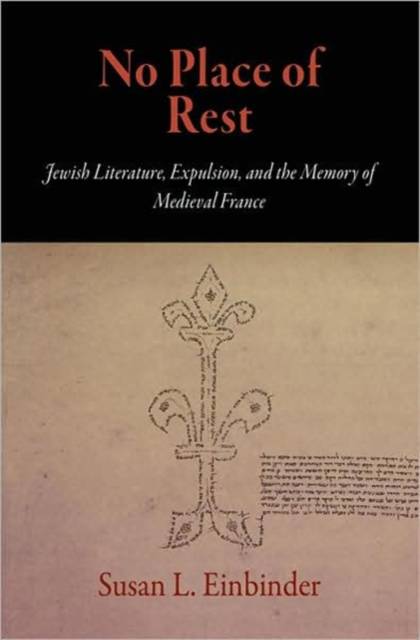
- Retrait gratuit dans votre magasin Club
- 7.000.000 titres dans notre catalogue
- Payer en toute sécurité
- Toujours un magasin près de chez vous
- Retrait gratuit dans votre magasin Club
- 7.000.000 titres dans notre catalogue
- Payer en toute sécurité
- Toujours un magasin près de chez vous
100,95 €
+ 201 points
Description
When King Philip VI expelled the Jews in 1306, some 100,000 men, women, and children were driven from royal France into the neighboring lands of Spain, Provence, Italy, and North Africa. The great expulsion of 1306 was arguably one of the most traumatic moments of medieval Jewish history and would prove to be the harbinger of a series of recalls and expulsions, local and general, culminating in King Charles VI's expulsion decree of 1394.
Despite the upheavals of the fourteenth century, the literary productivity of Jews was astonishing. Yet there are few direct references to the catastrophic events of 1306, even in Jewish liturgical and historiographic texts, where one would expect to find them. In No Place of Rest, Susan Einbinder coaxes out the literary traces of this traumatic expulsion. Why did the memory of this proud and vibrant Jewish community fade from historical memory? Where do its remnants reside among later communities and readers? From the lyrics of the supposed "Jewish troubadour" Isaac HaGorni to medical texts and astronomical charts, Einbinder studies a range of writings she reveals to be commemorative. Her careful readings uncover the ways in which medieval Jews asserted their identity in exile and, perhaps more important, helped to preserve or efface their history.Spécifications
Parties prenantes
- Auteur(s) :
- Editeur:
Contenu
- Nombre de pages :
- 280
- Langue:
- Anglais
- Collection :
Caractéristiques
- EAN:
- 9780812241150
- Date de parution :
- 04-11-08
- Format:
- Livre relié
- Format numérique:
- Genaaid
- Dimensions :
- 157 mm x 229 mm
- Poids :
- 566 g







